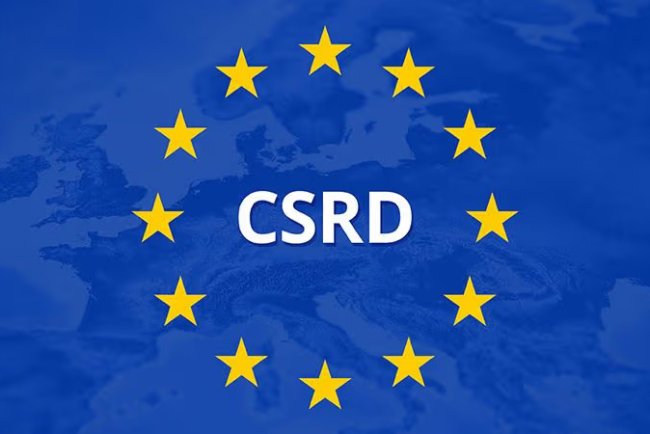EU Proposal May Exempt Majority of Insurers from CSRD Requirements
The EU’s omnibus proposal may exempt up to 85% of insurers from CSRD requirements based on size and turnover thresholds. Critics argue this undermines transparency and weakens oversight of climate-related financial risks in the insurance sector.

The European Union is currently pondering a wide-ranging legislative reform through its omnibus proposal that could leave a large number of insurance firms outside the scope of the Corporate Sustainability Reporting Directive (CSRD). This proposed move has deeply irritated sustainability stakeholders and financial transparency groups, warning that exclusion can undermine the EU's general goal of tracking climate-related financial risk across the whole insurance industry.
Up to 85% of insurers in Europe might be exempted from CSRD reporting requirements under the proposed employee and turnover thresholds per year, according to a recent report by ShareAction. CSRD, which is designed to improve ESG transparency across companies, is part of the EU sustainable finance package. Its enforcement was to introduce standardization and longevity to disclosure on ESG across sectors, including insurance.
Its effect would, however, be susceptible to some threshold conditions. If the exemption takes into account consideration of the fact that companies have fewer than 1,000 employees, approximately 51% of insurers would be out of scope for the CSRD. Lowering the turnover threshold to €450 million would take the exemption to approximately 67%. The most important change would be if the French proposal to raise the employee threshold to 5,000 were to be taken into account together with a cap on turnover—under these circumstances, up to 85% of insurers would no longer have to be included under reporting under the directive.
This potential reversal is viewed as a step back from a decade of progress in climate risk disclosure in the insurance industry. In our absence of required reporting, regulators and investors will have less insight into how insurers evaluate and track their own climate-related financial risk exposure. Insurers are key to climate-resilient results as underwriters and institutional investors. Lower levels of transparency in this sector can lead to less well-informed risk judgment and financial decisions in the context of climate-related dislocation.
The European Insurance and Occupational Pensions Authority (EIOPA) has long known the advantages of this expansion and is said to be proceeding step by step. While there is enthusiasm for simplifying regulations and easing reporting requirements where feasible, there is also recognition of the desire for a harmonized and trustworthy system of data in EU states. Quality data on sustainability is seen as fundamental to regulatory regulation and strategic choices in financial markets.
It has further been criticized for timing as omnibus instructions have always been utilized in renovating long standing rules that need technical revisions. However, the CSRD is still not completely in operation within all EU member states. To change such a newly drafted rule by an omnibus process is deemed highly unusual and premature by some.
One of the major issues that critics have pointed out is that exempting insurance firms from the requirements of CSRD goes against the EU's own aim of supporting sustainable finance and ensuring the financial sector is resilient to climate risks. Insurance firms hold vast asset portfolios and are subject to various climate risks in their underwriting operations. Without standardization in sustainability reporting, it is hard to assess how climate threats are being addressed by such companies or how their investment approaches are being aligned with EU climate objectives.
Furthermore, taking away so large a part of the insurance industry from required sustainability reporting would impact investor confidence. ESG investors rely significantly on consistent, comparable, and stable information in order to understand the sustainability performance and risk exposure of the firms into which they invest. With less information coming from insurers, investors can be less able to make a good investment decision, shifting funds elsewhere within the sector.
The proposed exclusion also stimulates concerns of consistency across sectors. While financial institutions and corporates are set to be subject to more demanding reporting requirements under the CSRD, to exclude most insurers would introduce regulatory inconsistencies and dilute broader EU financial system responsibility. It would also establish a precedent that would be followed by other sectors, undermining the credibility of the regime as a whole.
As the EU considers the details of the omnibus proposal, some stakeholders urge a balanced approach that preserves proportionality in reporting thresholds but not at the cost of transparency or systemic surveillance. Proposals range from making phased thresholds or other simplified disclosures available to smaller companies instead of flat exemption.
Meanwhile, reports such as ShareAction's Insurance in Transition: Decoding the Omnibus Agenda's Ripple Effect are raising alarms regarding the possible long-term effect of the proposal. Such analysis emphasizes the need to preserve stringent disclosure requirements in sectors that are central to climate adaptation and risk transfer.
The ultimate verdict of the omnibus proposal remains pending, with more news to be released later this year. In the meantime, concerns are that the EU will continue on its existing path of regulation when it comes to sustainable finance or falter from its own ambitions by downscaling reporting requirements within an essential sector.
Credits:
Source: Green Central Banking
What's Your Reaction?

















